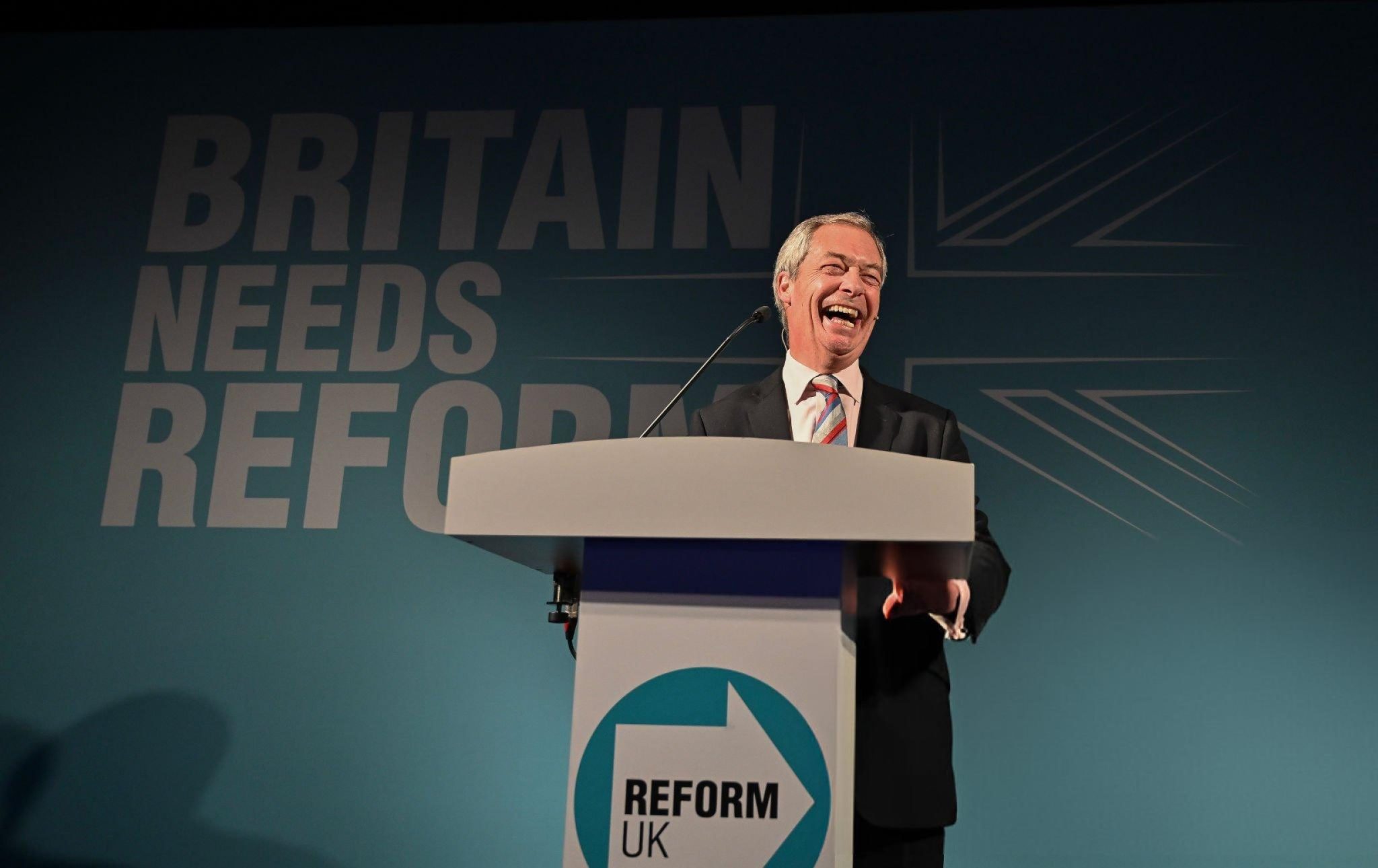A new poll has revealed that Nigel Farage enjoys a more favourable public perception than any other senior political leader in the UK. However, the survey also highlights a prevailing negativity towards high-profile politicians and political parties among the British public.
The monthly Ipsos Political Pulse survey found that Farage, the leader of Reform UK, and Conservative minister Kemi Badenoch are the only prominent figures whose favourability ratings have improved since January. Meanwhile, support for Prime Minister Sir Keir Starmer and Chancellor Rachel Reeves has declined.
According to the data, 31% of respondents view Farage favourably, compared to 46% who hold an unfavourable opinion, giving him a net favourability rating of minus 15. This represents a five-point increase from January, suggesting that Reform UK’s messaging is resonating with some voters.
How do other leaders compare?
The results show that Sir Keir Starmer’s popularity has slipped, with his net favourability dropping by 3.5 points to minus 34. Just 21% of respondents hold a positive opinion of the Labour leader, while 55% view him negatively.
Chancellor Rachel Reeves recorded the worst net score among major politicians at minus 39, with only 14% of the public expressing a favourable view of her, compared to 53% with an unfavourable opinion. This represents a three-point decline from last month.
The leader of the Liberal Democrats, Sir Ed Davey, has the highest net rating of minus 12, though his recognition remains lower than other political figures. Deputy Prime Minister Angela Rayner scored minus 30, slightly better than her Labour colleagues.
Meanwhile, Kemi Badenoch, a rising star in the Conservative Party, saw a 0.5-point increase in her net rating, bringing it to minus 29. While still negative, this small boost suggests she is holding ground better than many of her fellow Conservatives.
Political parties: Reform UK on the rise
The Ipsos survey also examined the public’s perception of political parties.
- The Green Party had the best net favourability score of minus 5, making it the least disliked party.
- The Liberal Democrats followed with minus 12, while Reform UK came in at minus 14.
- However, Reform UK experienced the biggest increase in favourability, gaining four percentage points since last month.
- Labour was viewed favourably by just 24% of respondents, with 52% holding an unfavourable view, leaving the party with a net rating of minus 28.
- The Conservative Party remains the least popular, with a net rating of minus 34. While only 19% of the public view the Tories positively, 53% see them unfavourably. However, this marks a 1.5-point improvement from last month.
Despite Labour’s consistent lead in national voting intention polls, the Ipsos survey indicates a decline in public perception, with the party seeing a 3.5-point negative swing in its favourability.
Public opinion on the government
The survey also explored public attitudes towards the direction of the country and the performance of the government.
- 62% of Britons believe the UK is heading in the wrong direction, a figure unchanged since January.
- Just 15% of respondents feel the country is on the right path, underscoring deep dissatisfaction with the political landscape.
- When asked to rate the Government’s performance on a scale of 1 to 10, the average score was 3.5, down slightly from 3.7 last month.
- 47% of voters believe the Government is doing a poor job, while 28% rated its performance as moderate, and only 18% gave it a high rating.
Among different age groups, younger respondents aged 18-34 gave the Government an average score of 4.9, the highest rating among all demographics. In contrast, those aged 55 and over were the most critical, awarding the Government a low score of 2.7.
Donald Trump’s rating among britons
The Ipsos survey also measured public sentiment towards former US President Donald Trump, though it was conducted before his controversial comments regarding Ukraine.
- 25% of Britons viewed Trump favourably, while 57% held an unfavourable opinion, giving him a net rating of minus 32.
Keiran Pedley, Director of UK Politics at Ipsos, commented on the findings, highlighting Nigel Farage’s relatively strong position compared to other leaders:
“This polling shows the relatively competitive position Nigel Farage holds versus other party leaders. More Britons are favourable towards Farage than Starmer, Badenoch or Davey. However, these findings were taken before Donald Trump’s recent comments about Ukraine, so it remains to be seen whether these – and Nigel Farage’s response – impact the numbers moving forward.”
What this means for UK politics
The latest Ipsos poll paints a complex picture of the political landscape in Britain. While Nigel Farage enjoys a stronger favourability rating than other political leaders, the public remains broadly dissatisfied with all major parties and politicians.
The survey also indicates a growing disillusionment with Labour, despite its lead in the polls, while Reform UK is gaining momentum, reflecting increasing frustration with the political status quo.
With a general election expected later this year, these findings could have significant implications for the campaign strategies of all major parties, particularly as Reform UK seeks to capitalise on its rising support.







